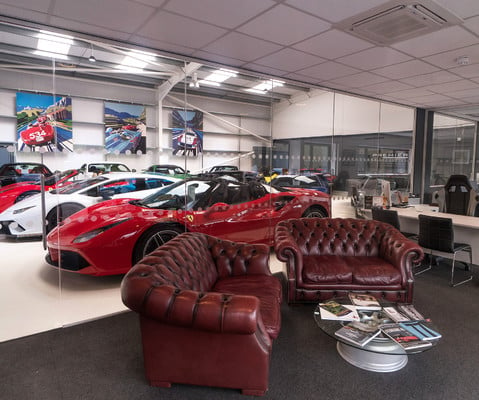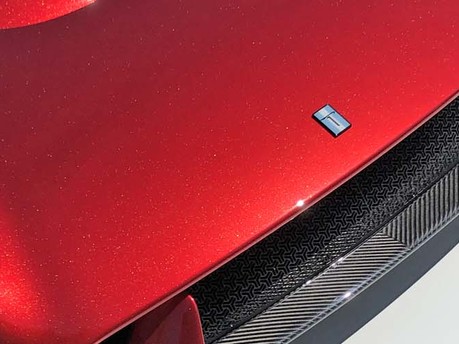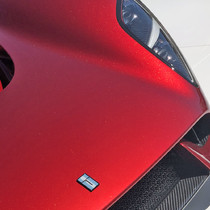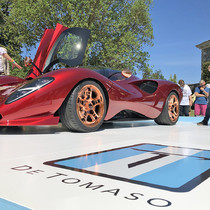
The Revival Of An Automotive Icon: The Wraps Come Off The De Tomaso P72
The Goodwood Festival of Speed has recently become the destination for manufacturers to launch their new wares to the world. A location unlike any other, Goodwood is a natural fit for the launch of the rare and the exotic and last weekend, Goodwood played host to more than just a vehicle launch, it witnessed the renaissance of an automotive icon.
As with any cultures around the world, certain names evoke special memories and within automotive folk law, the moniker of De Tomaso is one that stirs the senses, unlike many others. For many years the De Tomaso name disappeared, but now, to much fanfare, it has returned with the achingly beautiful P72.
Originally founded in Italy in 1959, by Argentian, Alejandro de Tomaso, De Tomaso quickly became a renowned maker of sports cars and luxury machines out of their headquarters in Modena, Italy's production heartland. An iconic name flanked by an iconic badge, the blue and white is a nod to Alejandro’s Argentian heritage.
Throughout the past 6 decades, De Tomaso has been on somewhat of turbulent journey thanks to the business being acquired and then subsequently sold on to new owners on numerous occasions before falling off the automotive radar completely until only recently.
In the marques early days, the De Tomaso brand is credited with producing some of the most iconic cars in motoring history. Arguably one of De Tomaso’s greatest hits to date is the acclaimed Pantera.
An instant hit from both a performance and design perspective the Pantera featured a beautifully Italian styled body and a full-fat V8 engine, the perfect antidote for what was dominating across the Atlantic.
After the success of the Pantera, the company passed through a turbulent time with a number of different owners. Between 1976 to 1993 De Tomaso found itself in ownership of Maserati and during this time De Tomaso oversaw the production of the Maserati Biturbo, Kyalami, Quattroporte III, Karif, and Chrysler TC.
It’s surprising then that despite this impressive back catalogue and it’s standing the in the automotive world that De Tomaso was to fall off the map for so long. Despite several attempts to revive the brand, the De Tomaso name wouldn't be properly resurrected until Hong-Kong based Ideal Team Ventures stepped in 2014. It’s off the back of this investment that the P72 was conceived.
Lead by chairman Norman Choi, the P72 was designed to bring De Tomaso back on to the automotive map and to thurst the brand into the territory of the established supercar players.
In the new design, the new backers behind De Tomaso were keen to lean on De Tomaso’s rich racing heritage and the design of the P72 is based on the P70 racing car and the LeMans race cars of the 1970s. Naturally given this brief, the P72 features beautifully sculpted bodywork from the front to rear with a profile that is effortlessly sleek.
It’s clear the Le Mans racers of old have clearly influenced this design and whilst going for a retro angle, the P72 manages to fuse both vintage and futuristic appeal in one unique design and this is also clear from an interior point of view. On the inside, this future-cum-vintage design is clearly prevalent as analogue dials flank the dashboard alongside beautifully stitched leather and polished copper elements.
Whilst the P72 is still to pass its road-going homologation, De Tomaso have stressed that the P72 will not differ to that of the pre-production model showcased to the world at Goodwood. With the car set to enter production in 2020, what is clear is that the P72 will be a strictly limited machine with only 72 units set to go into production.
If the reaction of the crowds is anything to go by, then this latest reincarnation of De Tomaso looks set to be a successful one.



